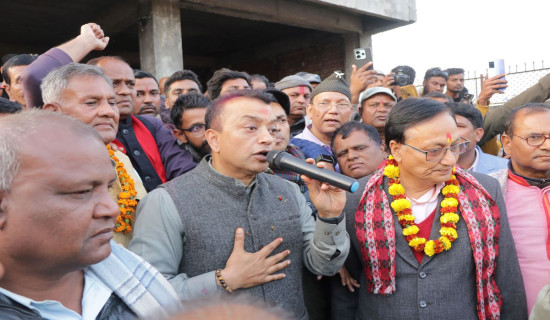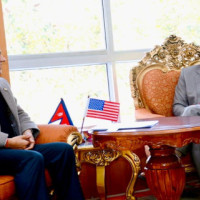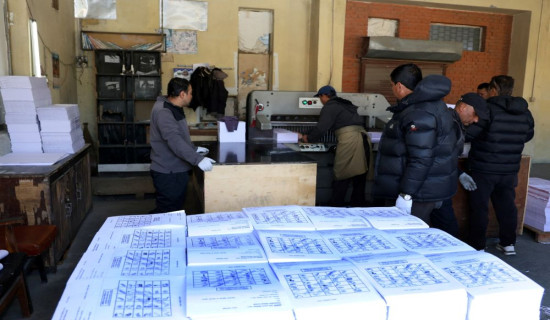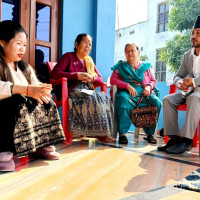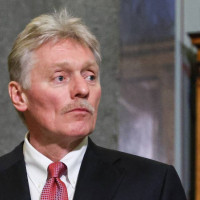- Tuesday, 27 January 2026
Democracy Day Special
Revolution Of 1951: Base Of Liberal Democracy
…The government of the people, by the people, for the people. This is the famous definition of democracy given by US President Abraham Lincoln in his Gettysburg address in 1863. The essence of this definition is that people themselves form the government, and the government works for the people.
Today, 168 years after Lincoln made the famous expression regarding democracy, most political thinkers and democratic leaders in the world regard this as the best definition of democracy.
Obviously, in a democracy today, people enjoy the power to form their government through elections. If the elected government fails to serve their interest, the people will reject it and form a new one in five years through periodic elections, which must be held in a free, fair, and fearless manner. Periodic elections are the basic component of democracy. Besides this, people enjoy freedom of expression and speech in a democracy. They can take up an occupation of their choice. They can settle in the area where they want to. They can raise voices against the ruling leaders and criticise them. No one is jailed and punished for creating literary works or opening a library. Press freedom is guaranteed in a democracy.
We, Nepali people, are now also enjoying these freedoms. They are also guaranteed by the constitution. No one can snatch them away. Moreover, our democracy looks more liberal today than the democracy being enjoyed by the people in many countries, including those in South Asia. No one was jailed or held for taking any lawful occupation. No one is punished for opening a library or writing a literary work or criticising the government and the prime minister.
However, before the advent of democracy in 1951, many Nepali people were jailed or even killed for writing a book like Makaiko Kheti or for opening a library. The democratic rights and freedom that we are enjoying today is the outcome of the epoch-making democratic revolution of 1951 that overthrew the 104-year family rule of the Ranas and ushered in democracy in Nepal. Today, we are observing Democracy Day to commemorate the day when the Nepalis became 'people' from 'ruled' 75 years ago.
The young generation of people of today who were brought up and educated in a democracy may not be familiar with the tortures and punishments our forefathers underwent for ushering in democracy in the country. With the fading practice of reading or even teaching history, the youth today may lack knowledge about the democratic movements that began in Nepal in the 1940s and culminated in the establishment of democracy by overthrowing the Rana rule in 1951 through an armed revolt launched by the Nepali Congress. Even after 1951, Nepali people had to continue their democratic movements time and again till 2006, when the democratic achievements were curtailed or snatched away in 1960 and in 2005.
Nepali people ushered in democracy in Nepal first on February 18, 1951, through a historic declaration by King Tribhuvan in Kathmandu after the Nepali Congress, the King, and the Ranas reached an agreement in Delhi, India, to end the Rana rule and form a joint government of the Nepali Congress and the Ranas.
The armed revolt launched by the Nepali Congress as decided by its Bairgania conference held on September 26 and 27 first captured Birgunj on November 10, 1950. Before this, King Tribhuvan took asylum at the Indian Embassy in Kathmandu on November 6, 1950, and left for Delhi on November 11, taking all his family members and leaving only his four-year-old grandson Gyanendra back in Kathmandu.
The departure of Tribhuvan to India came as a big shock to the Ranas. When the Mukti Sena of the Nepali Congress was waging an armed revolt outside the Kathmandu Valley, capturing strategic towns like Birgunj, King Tribhuvan left Kathmandu, leaving the Ranas no option but to make Gyanendra the new king. But this strategy did not work when Britain and India did not recognise the new king.
Ultimately, this culminated in the signing of the Delhi agreement, which ended their family rule and established democracy in Nepal. Although the Delhi agreement announced by India on January 15, 1951, put the Nepali Congress in a difficult situation because the new democratic government would be formed under Mohan Shumsher, against whom the NC had raised the arms.
However, they have no option but to accept it. A month after the announcement of the Delhi agreement, King Tribhuvan and Nepali Congress leaders returned to Nepal, and democracy was formally established on February 18, 1951.
Now 74 years have elapsed since the establishment of democracy, and many of the goals envisaged by the leaders who fought for democracy and laid down their lives have not yet been realised.
We have not yet overcome poverty, ended discrimination and corruption, and accelerated development activities. This Democracy Day should, therefore, inspire us to sincerely work to realise the goals and dreams of the leaders and martyrs who launched the revolution of 1951 and brought about the dawn of democracy in Nepal.
(The author is deputy executive editor of this daily.)



